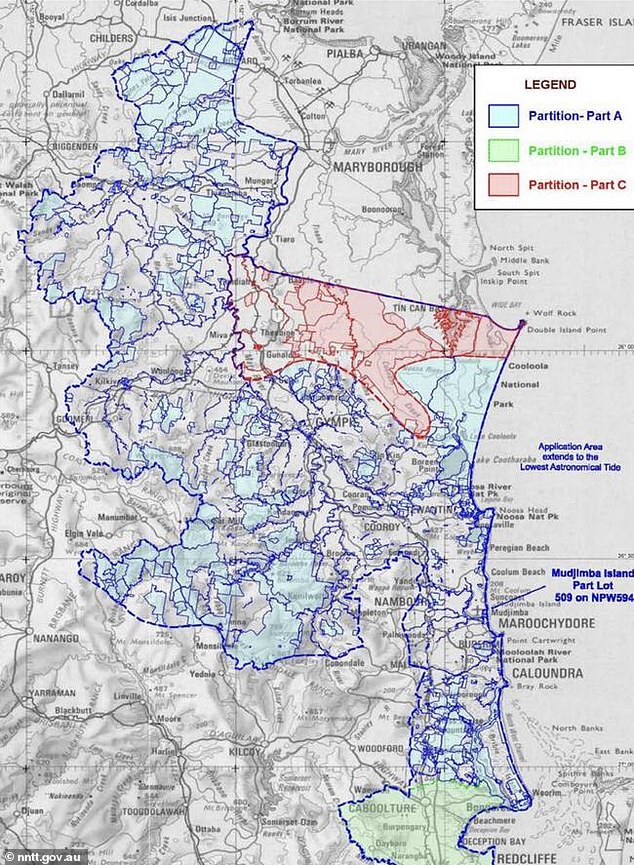Kabi Kabi people awarded native title over a 356,345-hectare area in Queensland
An Indigenous group has been granted native title to a 356,345 hectare property in Queensland.
The Federal Court on Monday formally recognized the Kabi Kabi people as indigenous title holders of land covering Noosa, Bribie Island, Gympie, Maroochydore, Caloundra and Mudjimba Island.
The non-exclusive property rights mean that the Kabi Kabi people have the right to hunt and camp in the area, but not to control access or use of an area.
Non-Indigenous people will still have the right to use the land under non-exclusive native title, and those who own property or homes in the areas will not be affected.
Judge Berna Collier told the court the group “has and always has had indigenous property rights and interests in this country.”
The Federal Court on Monday formally recognized the Kabi Kabi people as indigenous title holders of land covering Noosa (pictured), Bribie Island, Gympie, Maroochydore, Caloundra and Mudjimba Island.

The non-exclusive property rights mean that the Kabi Kabi people have the right to hunt and camp in the area, but not to control access or use of an area. They have been given the title of Indigenous land above Part A on the map above
“I congratulate all stakeholders for reaching an agreement on this issue, but especially the Kabi Kabi people whose indigenous property rights and interests have received deserved recognition today.”
The legal claim was filed back in 2013.
Monday’s decision only applies to one part of the Kabi Kabi people’s claim. Two other sections in the claim for additional land have yet to be determined.
Indigenous land rights recognize the rights of the indigenous group to ‘access, be present in, move around and travel through the area’.
Judge Collier told the court the decision did not grant native title holders ‘possession, occupation, use or enjoyment to the exclusion of all others, including other interests as defined in the judgment and still in force’.
Kabi Kabi traditional owner Brian Warner said it was a bittersweet moment as some elders had passed away before the land titles were granted.
“A lot of people have been here from the very beginning, but we’ve lost a lot of seniors along the way,” he said.
“So it’s very emotional: we mourn those we’ve lost, but we celebrate our future and our people.”
More to come
